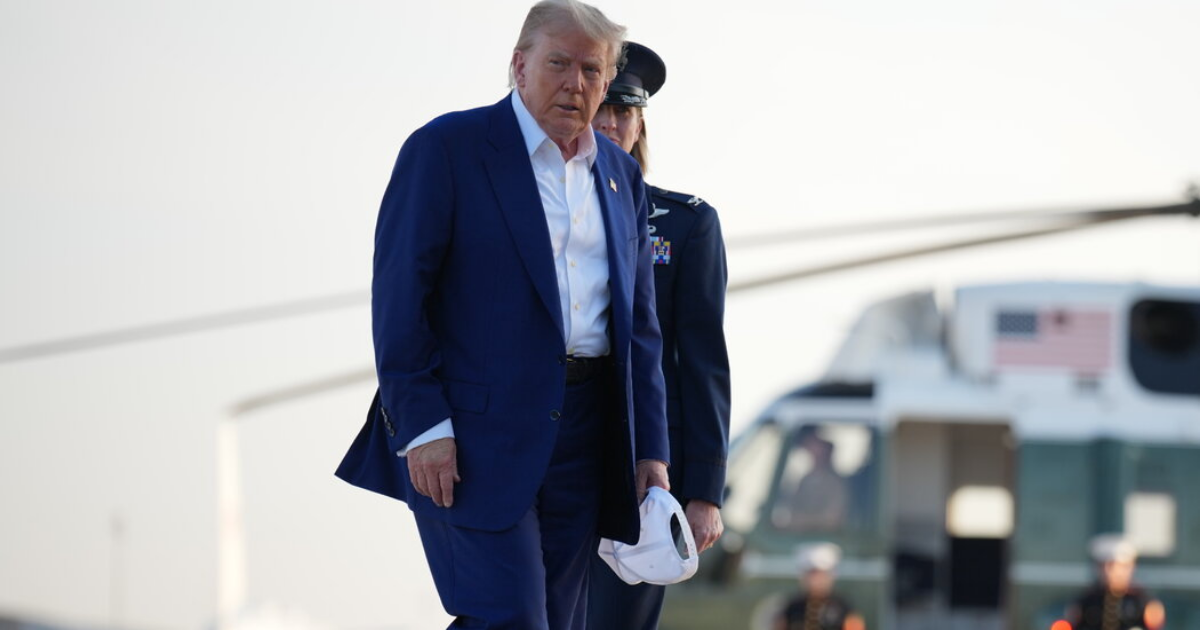President Trump lashed out at Israel and Iran on Tuesday over concerns that both sides had violated an hours-old cease-fire, intensifying the uncertainty over the fragile deal that he had helped broker to end the deadly conflict.
In expletive-laced remarks to reporters, Mr. Trump accused both sides of launching attacks, pledging to “see if I can stop it.” In a Truth Social post, the president warned Israel not to “drop those bombs” and demanded the country “bring your pilots home now.”
It was unclear whether either side had breached the cease-fire. Israel’s military accused Tehran of firing missiles after the deal went into effect on Tuesday and vowed to retaliate. Iran’s military denied doing so, according to Iranian state news outlets.
The agreement, if it holds, would end 12 days of unprecedented warfare between Iran and Israel that also brought in the United States, as Mr. Trump ordered U.S. forces to bomb Iranian nuclear sites and Tehran responded by firing missiles at a key U.S. base in Qatar.
Mr. Trump spoke to reporters before departing for a NATO summit in the Netherlands. His announcement of a cease-fire on Monday evening had caught some of his own officials by surprise.
In the last moment before the cease-fire was meant to take effect, both sides continued to trade fire. The Israeli military said it had struck missile launchers in western Iran that were poised to fire at Israel. Iran launched at least four barrages of ballistic missiles at Israel, setting off sirens that sent millions of Israelis rushing in and out of shelters. At least four people were killed when a missile hit an apartment building in the southern city of Beersheba.
But by around 7.30 a.m. in Israel, a tentative calm appeared to have taken hold as the military issued an all-clear, allowing people to exit bomb shelters. Soon after, President Trump announced the truce was in force. “PLEASE DO NOT VIOLATE IT!” he added.
There was initially silence from the Israeli government, which has in the past often waited in the first, delicate hours before declaring conflicts over. Just after 9 a.m. local time, Israel’s government issued a statement saying it had agreed to a mutual cease-fire, having achieved its goals in its campaign in Iran, “and in full coordination with President Trump.” Iran, similarly, cast the truce as a sign its military had prevailed.
But underscoring the fragility of the situation, more sirens wailed in northern Israel nearly two hours later, warning of missiles launched from Iran. The Israeli military accused Iran of breaking the cease-fire — saying in a statement that it would “respond with force.”
Here’s what else to know:
- Global reaction: The cease-fire announcement was welcomed, albeit cautiously, by world leaders. “If a cease-fire has indeed been achieved, then that can only be welcomed,” said Dmitri S. Peskov, the spokesman for President Vladimir V. Putin of Russia. “We hope that it will be a sustainable cease-fire.” President Emmanuel Macron of France praised the cease-fire announcement but warned that “the situation remains volatile and unstable.”
- Turning point: A turning point in the war came when the United States joined Israel’s campaign on Sunday, striking three nuclear sites, including a subterranean facility that had been largely impenetrable to Israeli attacks. Iran responded on Monday with a missile attack on a U.S. base in Qatar, in a move that was telegraphed in advance, allowing American troops to evacuate or shelter in time and creating space for de-escalation.
- Investors relieved: News of the cease-fire sent markets higher in Asia, where countries need energy imports to power their economies. Stocks in South Korea surged the most at 3 percent. S&P 500 stock futures were about 1 percent higher, signaling an expected rise when trading begins in New York. The price of oil has fallen back to around where it was before Israel first attacked Iran nearly two weeks ago.
- Victory narrative: Iran’s response to the attacks on its nuclear facilities killed no Americans, and analysts say that gave every side a narrative for victory, while avoiding the risk of stumbling into a larger conflict with severe consequences for the region and beyond.
